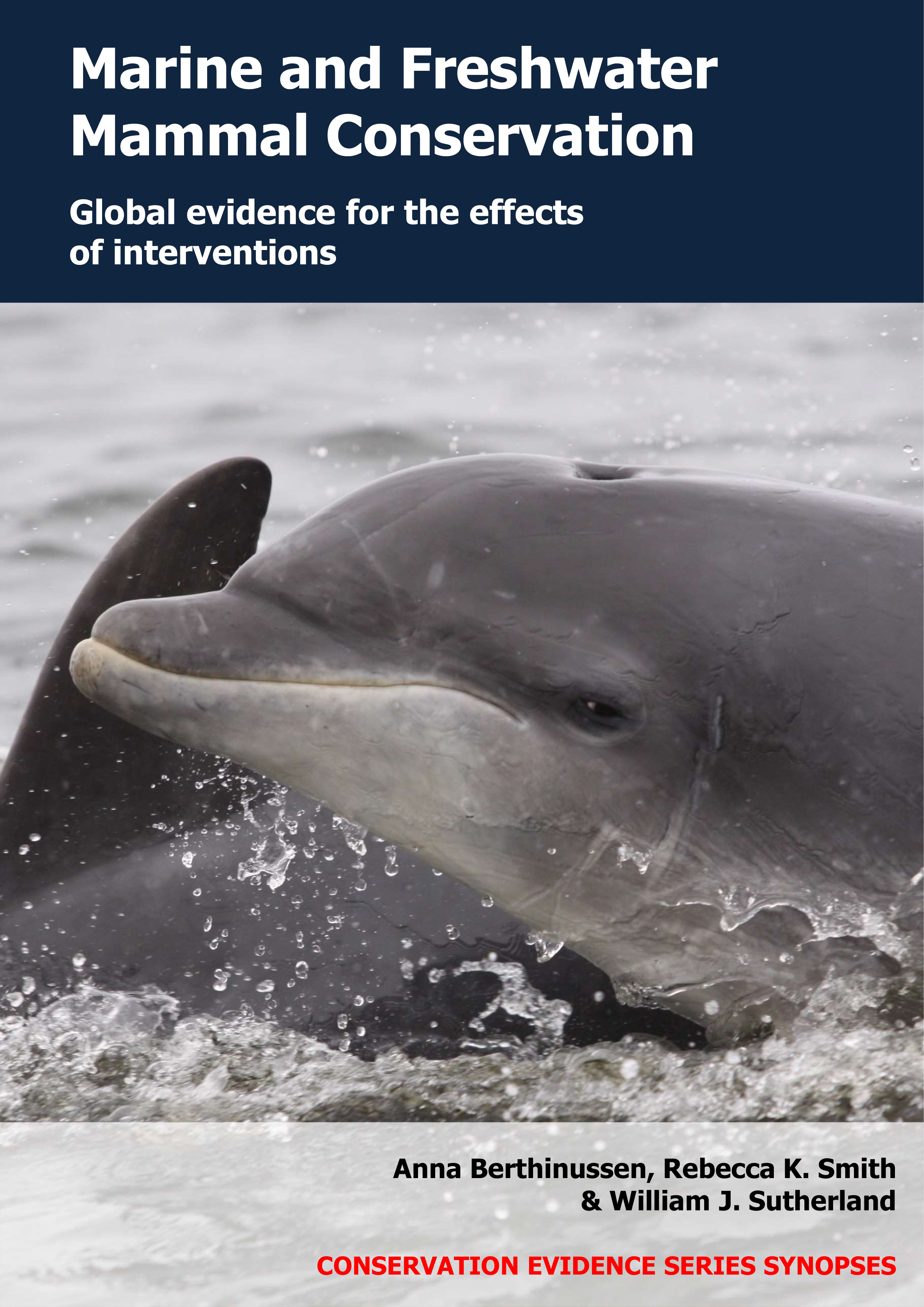Engage policymakers to make policy changes beneficial to marine and freshwater mammals
-
Overall effectiveness category Unknown effectiveness (limited evidence)
-
Number of studies: 1
View assessment score
Hide assessment score
How is the evidence assessed?
-
Effectiveness
75% -
Certainty
25% -
Harms
0%
Study locations
Supporting evidence from individual studies
A study in 2001–2008 in the Catazajá wetlands, northeast Chiapas, Mexico (Rodas-Trejo et al. 2008) reported that engaging policymakers in West Indian manatee Trichechus manatus manatus conservation resulted in the designation of a protected area. Policymakers were engaged in manatee conservation over a seven-year period in 2001–2007. In November 2006, wetlands (41,000 ha) used by West Indian manatees were designated as a protected area by local and regional governments. In February 2008, the area was designated as an internationally important site. In 2001–2007, local government officials, fishers and students were informed about the value of conserving manatees and their habitats. A total of 4,540 participants attended 23 workshops and 80 public talks. Publications on manatee conservation (four posters, five videos, two leaflets, one booklet) were distributed to community government officials and local schools. Local community members assisted researchers in recording manatee sightings and rescuing stranded manatees.
Study and other actions tested
Where has this evidence come from?
List of journals searched by synopsis
All the journals searched for all synopses
This Action forms part of the Action Synopsis:
Marine and Freshwater Mammal Conservation
Marine and Freshwater Mammal Conservation - Published 2021
Marine and Freshwater Mammal Synopsis





)_2023.JPG)














